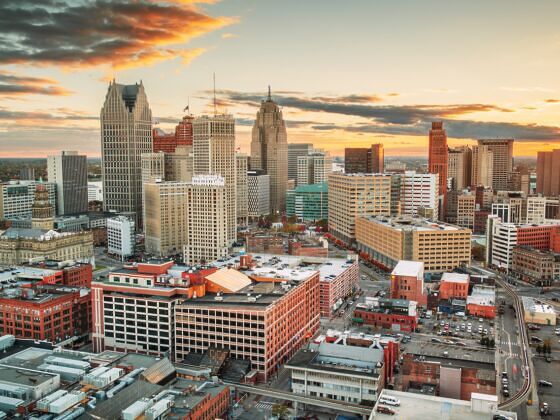These days, when I travel to Detroit it’s mostly for football games or funerals.
I suppose it’s odd to call myself a “traveler” to Detroit, the place where I was born and where I lived until I was 22.
Actually, let me take that back. I was born in a Detroit hospital; however, I grew up in the suburbs, and in my entire life have probably only spent a total of a few days below 8 Mile Road — yes, that is a real road, not just the name of the movie about Eminem.
